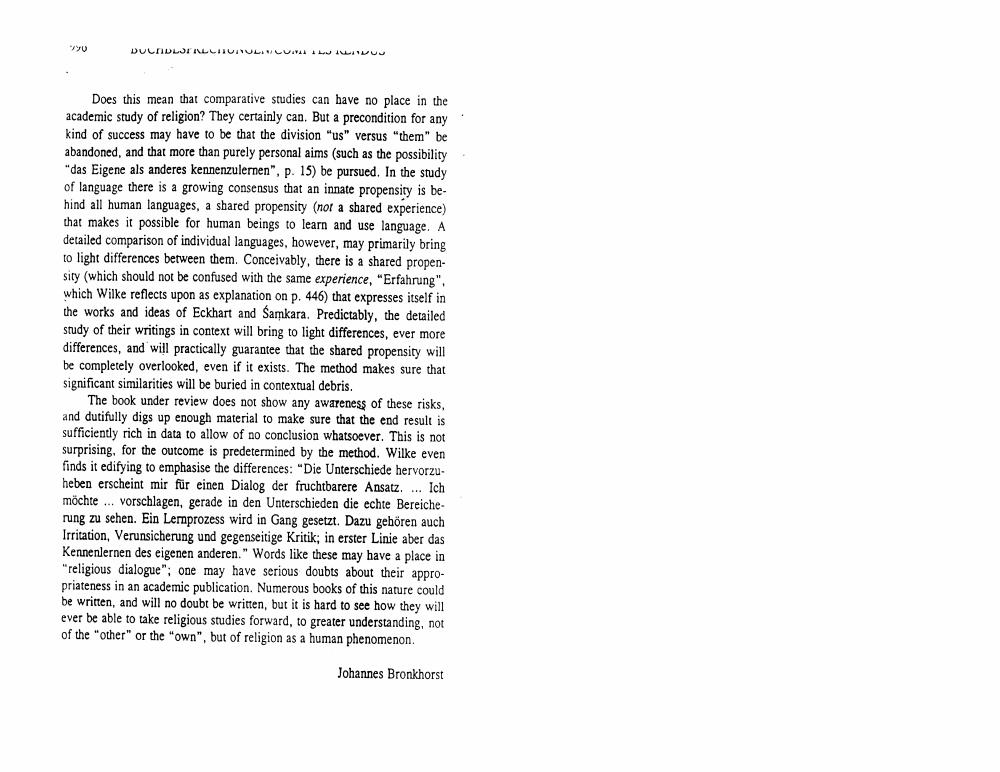Book Title: Buchbesprechungen Comptes Rendues Author(s): Rudolf Pfister Publisher: Rudolf Pfister View full book textPage 4
________________ DULODLJINUTTUITULAVLUM wwwuuu . Does this mean that comparative studies can have no place in the academic study of religion? They certainly can. But a precondition for any kind of success may have to be that the division "us" versus "them" be abandoned, and that more than purely personal aims (such as the possibility "das Eigene als anderes kennenzulernen", p. 15) be pursued. In the study of language there is a growing consensus that an innate propensity is behind all human languages, a shared propensity (not a shared experience) that makes it possible for human beings to learn and use language. A detailed comparison of individual languages, however, may primarily bring to light differences between them. Conceivably, there is a shared propensity (which should not be confused with the same experience, "Erfahrung", which Wilke reflects upon as explanation on p. 446) that expresses itself in the works and ideas of Eckhart and Samkara. Predictably, the detailed study of their writings in context will bring to light differences, ever more differences, and will practically guarantee that the shared propensity will be completely overlooked, even if it exists. The method makes sure that significant similarities will be buried in contextual debris. The book under review does not show any awareness of these risks, and dutifully digs up enough material to make sure that the end result is sufficiently rich in data to allow of no conclusion whatsoever. This is not surprising, for the outcome is predetermined by the method. Wilke even finds it edifying to emphasise the differences: "Die Unterschiede hervorzuheben erscheint mir fur einen Dialog der fruchtbarere Ansatz. ... Ich mochte ... vorschlagen, gerade in den Unterschieden die echte Bereicherung zu sehen. Ein Lernprozess wird in Gang gesetzt. Dazu gehoren auch Irritation, Verunsicherung und gegenseitige Kritik; in erster Linie aber das Kennenlernen des eigenen anderen." Words like these may have a place in "religious dialogue"; one may have serious doubts about their appropriateness in an academic publication. Numerous books of this nature could be written, and will no doubt be written, but it is hard to see how they will ever be able to take religious studies forward, to greater understanding, not of the "other" or the "own", but of religion as a human phenomenon. Johannes BronkhorstPage Navigation
1 2 3 4
